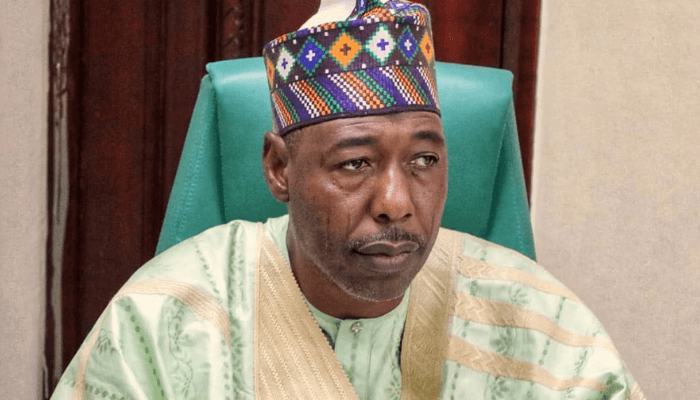The Monetary Policy Committee of the Central Bank of Nigeria is expected to maintain its hawkish stance in response to persistent inflationary pressures.
Following the September hike of 50 basis points, raising the Monetary Policy Rate to 27.25%, the MPC has consistently highlighted concerns about core inflation, excessive money supply growth, fiscal deficits, and surging food prices.
At the last MPC meeting, despite a downward trend in headline inflation, core inflation remained high, fueled by rising energy costs and structural challenges.
The CBN Governor, Olayemi Cardoso acknowledged the Federal Government’s efforts to tackle insecurity in farming areas, emphasizing the importance of sustaining these initiatives to stabilize food supply and prices.
The Committee reiterated its commitment to curbing inflation through appropriate monetary policy measures.
“In addition, the MPC applauded the ongoing effort of the Federal Government to bridge the food supply deficit through the duty-free import window for food commodities. The Committee also expressed optimism that lifting refined petroleum products from Dangote refinery will moderate transportation costs and significantly support the easing of food price pressures in the short to medium term.
“This is also expected to moderate foreign exchange demand for the importation of refined petroleum products, with a positive spillover on external reserves and an improvement in the overall balance of payment,” part of the statement read.
With inflation now reversing to an upward trend, analysts anticipate that the MPC will likely maintain its hawkish stance.
Analysts at Afrinvest highlighted the challenges facing the MPC, noting re-inflationary pressures in major external economies, rising domestic price levels, weaker PMI readings, and bureaucratic delays affecting Dangote’s PMS supply.
Additionally, concerns over a growing fiscal deficit and the sustained expansion of money supply—up 1.6% month-on-month to ₦109.0tn in September—add complexity to the MPC’s policy decisions, reinforcing the likelihood of a continued hawkish stance.
The latest PMI data from the CBN for October shows a decline to 49.6 points, down from 50.5 points in September. This marks a contraction in the business environment, ending two consecutive months of expansion.
The decline in the composite PMI to 49.6 points in October was driven by mixed performances across key sectors.
The Industry sector PMI contracted further to 49.3 points from 49.7, while the Services sector PMI stagnated at 50.0 points.
Meanwhile, the Agriculture sector PMI showed slower expansion, easing to 50.3 points from 51.4 in September.
“We note that the contraction in Industry PMI was stoked by downbeat performance across key metrics, including New Orders (49.7), Employment (48.7), and Stock of Raw Materials (49.2). Among the 17 subsectors surveyed, Food, Beverage, and Tobacco products recorded the sharpest contraction, reflecting the dual shock of households’ depleting purchasing power and negative exchange rate movement on production cost (NGN/USD lost eight per cent m/m to ₦1,671.32/USD at NAFEM window in October),” the weekly report indicated.
Analysts noted several key challenges the MPC will weigh in its decision-making. These include weak PMI data, surging inflation at 33.88%, a 2.2% month-on-month increase in energy prices, persistent foreign exchange volatility, and mounting fiscal pressures.
The national debt profile, which reached ₦134.3tn in H1 2024 (approximately 52% of GDP), could surpass ₦150.0tn by 2025 due to the projected ₦13.5tn deficit in the Medium-Term Expenditure Framework.
“Notwithstanding, the committee’s steadfast focus on curbing inflation and achieving positive real interest rate to attract foreign investment suggests that a further rate hike is imminent. Against this backdrop, we expect at least a 25bps increase to the MPR at the final policy meeting for the year next week Tuesday,” the analysts said.
Meristem Securities in their macroeconomic update said key global and domestic factors are likely to dominate the committee’s considerations.
“On the global scene, the reversal of disinflationary trends in advanced economies, following rate cuts aimed at stimulating growth, the recent decline in oil prices, and the possible repercussions of these developments on the domestic economy. In the domestic economy, rising inflation will be a key factor influencing the committee’s decisions, alongside heightened fiscal spending and the ongoing naira depreciation in both official and parallel markets.
“These considerations will likely shape the policy response, as the committee seeks to balance price stability with the fiscal pressures stemming from expanded public expenditures. Despite elevated fixed-income yields, investors continue to demand higher returns, intensifying pressure on the monetary landscape.
“We expect the MPC to focus on price stability and exchange management, given the persistent upward trend in headline inflation. The committee is likely to adopt a hawkish stance, opting for a rate hike to curb inflationary pressures, stabilize the Naira, and sustain investor interest in Nigeria’s fixed-income instruments,” analysts at meristem securities said.











